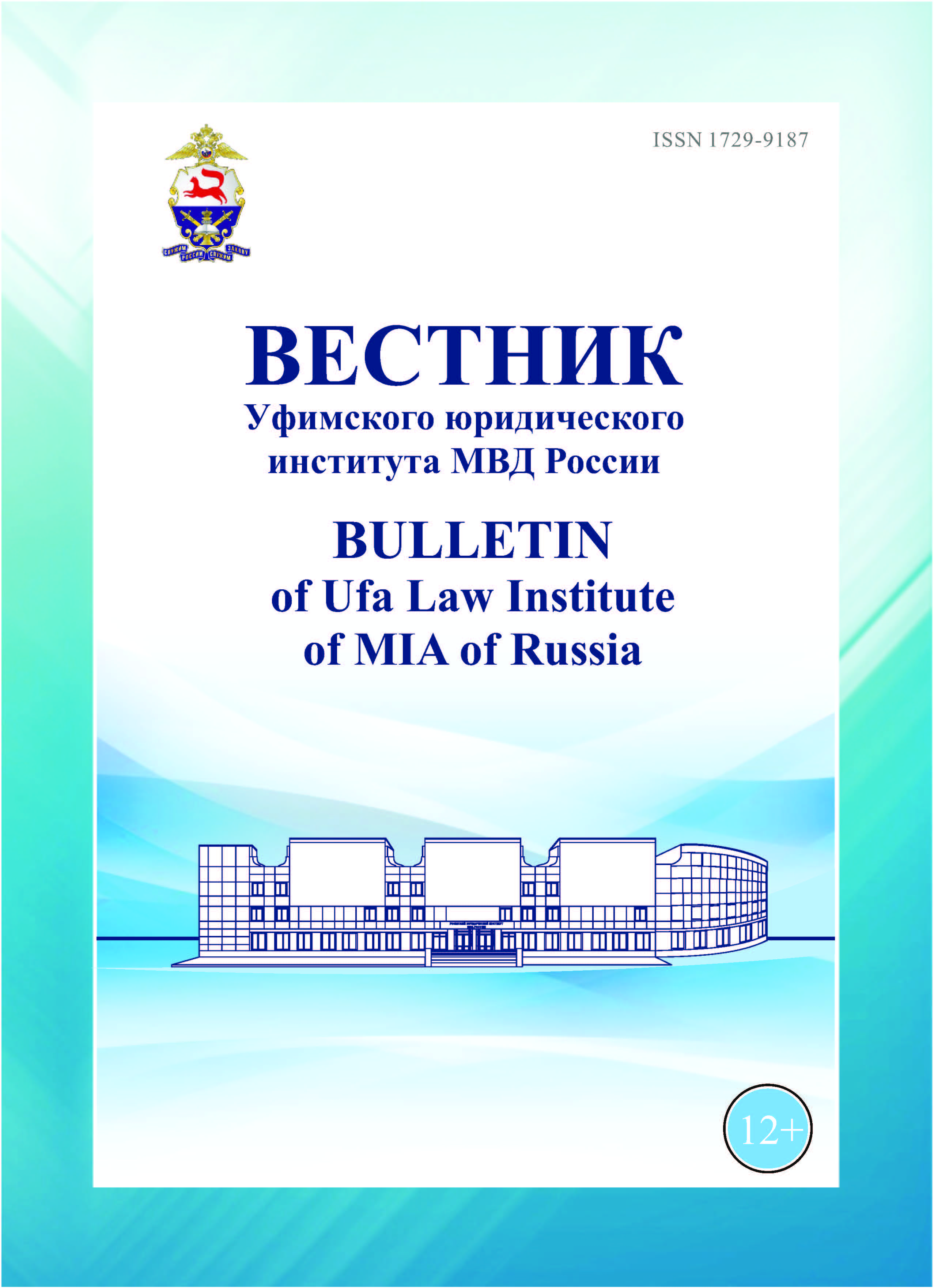Russian Federation
UDC 343.721
The article argues the conclusion that the criminal law norms stipulated by Art. 195–197 of the Criminal Code of the RF, there is no specification of a circle of subjects of the given crimes that causes difficulties for the law-enforcer. In this regard, the conclusion is formulated that, given the blanket nature of these compositions, it is advisable to fix the content of this subjective feature in the sectorial legislation. The author proposed to expand the list of wrongful acts (omissions) related to bankruptcy in the disposition of article 195 of the Criminal Code of the RF, as wrongful acts related to bankruptcy acquire new forms and content. The author has identified contradictions between the dispositions of the norms on credit fraud in bankruptcy (articles 195–197 of the Criminal Code of the RF), encroaching on the property of credit institutions and relations arising from the failure of the debtor to fully satisfy creditors’ claims, which leads to distorted and (or) unreliable interpretation and application of them. As a result of the study a conclusion was formulated on the need to exclude articles 196 and 197 of the Criminal Code of the RF, since their content is covered by article 195 of the Criminal Code of the RF based on the grammatical interpretation of the name and disposition of the article, which provides responsibility for any unlawful actions related to bankruptcy.
economy, crimes in the sphere of economic activity, corpus delicti, bankruptcy, creditor, debtor, fraud, bankruptcy misconduct, deliberate bankruptcy, fictitious bankruptcy
1. Belyakova E. G. Aktual'nye problemy sudebnoy finansovo-ekonomicheskoy ekspertizy po delam o prednamerennom bankrotstve yuridicheskih lic // Aktual'nye problemy rossiyskogo prava. 2019. № 9. S. 123–129.
2. Korennaya A. A. Opredelenie razmera uscherba, prichinennogo prednamerennym bankrotstvom (st. 196 Ugolovnogo kodeksa Rossiyskoy Federacii) // Arbitrazhnyy i grazhdanskiy process. 2021. № 1. S. 47–51.
3. Kuli-Zade T. A. K voprosu ob opredelenii uscherba pri prednamerennom bankrotstve // Rossiyskaya yusticiya. 2018. № 9. S. 20–22.
4. Osokin R. B. Hischenie putem obmana ili zloupotrebleniya doveriem (moshennichestvo): istoriya, elementy i priznaki sostava, kvalifikaciya: monografiya. Tambov: Tambovskiy filial Moskovskogo universiteta MVD Rossii, 2005. 128 s.
5. Karelina S. A., Moskaleva O. A. Sub'ektnyy sostav kriminal'nogo bankrotstva // Zakonodatel'stvo. 2007. № 12. 33–39.
6. Krymov V. A. Problemy v ustanovlenii sub'ekta prednamerennogo bankrotstva // Rossiyskiy sud'ya. 2007. № 4. S. 38–40.
7. Kuznecova O. A. Fiktivnoe bankrotstvo organizacii: kollizii grazhdanskogo, ugolovnogo i processual'nogo prava // Sudebno-arbitrazhnaya praktika Moskovskogo regiona. Voprosy pravoprimeneniya. 2003. № 3. S. 58–61.
8. Osokin R. B. Ob intellektual'no-psihologicheskih kachestvah sub'ekta moshennicheskih posyagatel'stv // Mezhdunarodnyy zhurnal psihologii i pedagogiki v sluzhebnoy deyatel'nosti. 2017. № 3. S. 49–50.
9. Mihaylenko I. Narushenie zakonodatel'stva o merah po preduprezhdeniyu bankrotstva kreditnyh organizaciy // Zakonnost'. 2001. № 10. S. 36–39.









